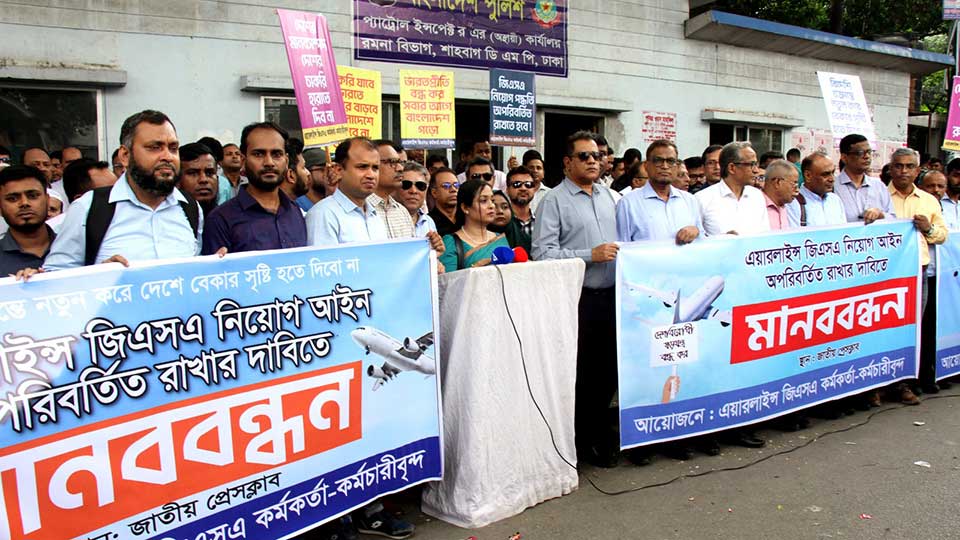
Dhaka: Officials and employees of various airline General Sales Agents (GSAs) have warned of large-scale job losses and severe disruptions in Bangladesh’s aviation sector if the government proceeds with its plan to amend the existing GSA appointment law.
At a human chain formed in front of the National Press Club on November 2, the GSA staff urged the authorities to retain the current provision in the 2017 Civil Aviation Act that makes it mandatory for foreign airlines to appoint GSAs in Bangladesh. They cautioned that scrapping this clause would endanger thousands of local jobs, open avenues for money laundering through hundi, and weaken regulatory oversight of the aviation market.
According to the demonstrators, nearly 50,000 people are directly or indirectly employed through GSAs representing foreign airlines in the country.
Nabila, an official of Oman Air’s GSA Air Galaxy, read out a written statement at the event. Other speakers included Munir from Air France’s GSA Bengal Airlift and Rafiqul Islam from Saudia Airlines’ GSA United Link.
They said the interim government’s initiative to amend the Civil Aviation Act could heavily favor foreign airlines at the expense of local employment and accountability. “GSAs are not merely intermediaries; they are the operational backbone that ensures fair business practices and protects passengers’ interests,” one participant said.
The speakers warned that abolishing the GSA requirement would lead to a revenue loss of over BDT 100 crore annually for the national exchequer. They also recalled past instances where the absence of GSAs led to widespread mismanagement, corruption, and ticket syndication when several major carriers — including Emirates, Qatar Airways, Saudia, Thai Airways, and Air India — operated directly in Bangladesh.
They argued that the introduction of mandatory GSAs brought order to the system, improved customer service, and curbed irregularities, particularly benefiting expatriate Bangladeshis who depend on affordable and reliable air services.
Following the demonstration, representatives submitted memorandums to the Chief Adviser and several ministries — including Civil Aviation and Tourism, Law, Labor and Employment, and Commerce — urging the government to uphold the existing law “in the greater interest of national employment, economic integrity, and aviation sector stability.”
- T







